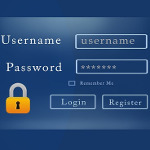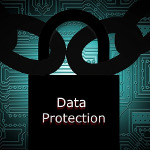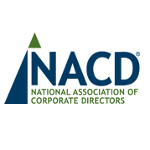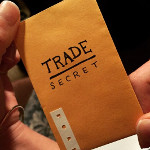Practical Law will present a free 75-minute webinar in which Matthew A. Karlyn, partner with Foley & Lardner LLP and co-author of “A Guide to IT Contracting: Checklists, Tools and Techniques,” to discuss practice tips on data privacy and security provisions of SaaS and other cloud service agreements, including a discussion of recent trends and issues.
The webinar will be Wednesday, June 15, at 1 p.m. EDT.
Data privacy and security are key issues for businesses who seek to upload their information onto the cloud, the company says on its website. Customers need assurance that the software as a service (SaaS) or other cloud service provider will maintain effective policies and practices to safeguard the confidentiality and security of their information.
In seeking this assurance, it is not enough for the customer to conduct due diligence of the provider’s practices because those practices, like the laws and regulations that govern them, can be a fast-moving target. Only by the skillful drafting of the customer’s cloud service agreement can counsel aim to ensure that the customer’s confidential, trade secret, and personal information stay well protected and that both the service provider and customer remain compliant with data privacy and security laws.
A key case is the pending replacement of the EU-US safe harbor framework with stringent requirements of a new, EU-US Privacy Shield for the handling of personal data. It is crucial to businesses that their cloud service agreements include terms broad enough to anticipate such legal developments, technological advances, and changes in standards and practices.
In this program, attendees will:
- Learn how to avoid common errors in data security, privacy, and disaster recovery provisions and provide for proper data protection both during and after the term of the cloud agreement.
- Explore effective remedies for breaches of data privacy and security.
- Consider the requirements of the EU-US Privacy Shield and its anticipated impact on cloud service customers and providers and the terms of their cloud service agreements.
A short Q&A session will follow.
Presenters:
- Matt Karlyn, Co-Chair Technology Industry Team, Foley & Lardner
- Paul Connuck, Senior Legal Editor, Intellectual Property & Technology
CLE credit is available for: Arizona, California, Colorado, Georgia, Hawaii, Illinois, Indiana, Mississippi, Missouri, New Hampshire, New Jersey, New York, North Carolina, Oklahoma, Pennsylvania, Vermont, Washington. CLE credit is being sought for: Louisiana, Minnesota, Oregon, Tennessee, Texas, Virginia CLE can be self-applied for in: Florida.
Register for the webinar.
 The risk of a data breach cuts across industries and affects businesses large and small, causing some companies to migrate mission-critical data, including sensitive customer information, to third-party cloud providers, according to an article written by Sidley Austin lawyers Scott Nonaka and Kevin Rubino for Bloomberg Law.
The risk of a data breach cuts across industries and affects businesses large and small, causing some companies to migrate mission-critical data, including sensitive customer information, to third-party cloud providers, according to an article written by Sidley Austin lawyers Scott Nonaka and Kevin Rubino for Bloomberg Law.
 In recent months, a proliferation of ransomware attacks has affected everyone from personal-computer and smart-phone owners to hospitals and police departments,
In recent months, a proliferation of ransomware attacks has affected everyone from personal-computer and smart-phone owners to hospitals and police departments,  With all the pressure on companies to build a robust cybersecurity defense within their own four walls, one area of risk might be getting overlooked, writes
With all the pressure on companies to build a robust cybersecurity defense within their own four walls, one area of risk might be getting overlooked, writes  The Wall Street Journal and Bloomberg Law
The Wall Street Journal and Bloomberg Law  Practical Law will present a
Practical Law will present a  A federal appeals court on Tuesday gave the U.S. Department of Justice broad leeway to police password theft under a 1984 anti-hacking law, upholding the conviction of a former Korn/Ferry International executive for stealing confidential client data,
A federal appeals court on Tuesday gave the U.S. Department of Justice broad leeway to police password theft under a 1984 anti-hacking law, upholding the conviction of a former Korn/Ferry International executive for stealing confidential client data, 
 Reuters
Reuters  In their first U.S. court appearances, two Israeli men pleaded not guilty on Thursday to charges that they broke into a dozen companies’ computer networks, including J.P. Morgan Chase & Co., to facilitate a global network of criminal activity, reports
In their first U.S. court appearances, two Israeli men pleaded not guilty on Thursday to charges that they broke into a dozen companies’ computer networks, including J.P. Morgan Chase & Co., to facilitate a global network of criminal activity, reports  The National Association of Corporate Directors’ 2016 edition of Governance Challenges combines guidance from five strategic content partners of the NACD with broad M&A expertise. The report addresses the importance of early board engagement in strategy, the need for proactive dialogue with all key stakeholders, and the imperative to balance short-term and long-term goals throughout the M&A process.
The National Association of Corporate Directors’ 2016 edition of Governance Challenges combines guidance from five strategic content partners of the NACD with broad M&A expertise. The report addresses the importance of early board engagement in strategy, the need for proactive dialogue with all key stakeholders, and the imperative to balance short-term and long-term goals throughout the M&A process.
 President Obama has signed a bill allowing companies to sue to defend their trade secrets,
President Obama has signed a bill allowing companies to sue to defend their trade secrets,  According to Grant Gross from IDG News Service, the banking document record leak now are known as the Panama Papers included 11.5 million confidential documents dating from the 1970s through to late 2015 — 4.8 million emails, 3 million database format files, 2.2. Million PDFs, 1.1 million images and 320,000 text documents. All of these documents were from Panama Law Firm Mossack Fonseca.
According to Grant Gross from IDG News Service, the banking document record leak now are known as the Panama Papers included 11.5 million confidential documents dating from the 1970s through to late 2015 — 4.8 million emails, 3 million database format files, 2.2. Million PDFs, 1.1 million images and 320,000 text documents. All of these documents were from Panama Law Firm Mossack Fonseca.